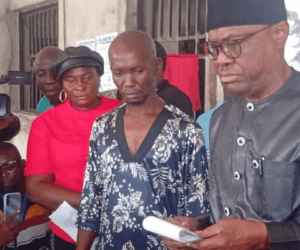A few months ago, it was widely reported in our national dailies how one of Nigeria’s anti-graft agencies uncovered numerous Ponzi scheme operators in the country. What a report indeed!
According to the statement released to the public, the agency assured Nigerians of its commitment to remain vigilant and proactively monitor economic actors across the nation’s financial landscape. Its primary objective is to protect citizens from these opportunistic and unscrupulous operators while deploying its anti-corruption mandate to stimulate economic growth and development.
The agency went further by publishing the names and identities of these fraudulent operators, who had falsely posed as legitimate investment firms while defrauding innocent Nigerians of their hard-earned income daily. It also clarified that none of these Ponzi operators were registered with the Central Bank of Nigeria (CBN) or the Securities and Exchange Commission (SEC), which regulate the country’s banking and capital market activities.
Understanding the concept of Ponzi schemes
The term “Ponzi scheme” originates from Charles Ponzi, an Italian businessman who, in the 1920s, popularised this fraudulent model. Though similar scams existed earlier, Ponzi’s activities gave the scheme its name.
A Ponzi scheme is characterised by using money from new investors to pay off earlier investors, thereby creating the illusion of profitability and attracting even more unsuspecting victims. Rather than generating legitimate business returns, operators recycle funds to sustain payouts until the scheme inevitably collapses. Once the inflow of new investors slows, the fraud unravels — leaving most participants in financial ruin.
Over the decades, Ponzi schemes have taken many forms. The early 20th century witnessed the original model. By the 1950s–1980s, these schemes grew in sophistication. The 1980s–1990s telemarketing era introduced direct promotion, while the 1990s–2000s saw email and internet scams thrive. In the 2000s–2010s, social media and crowdfunding platforms were exploited. More recently, the rise of blockchain and cryptocurrency has provided fertile ground for a new wave of sophisticated fraud. Today, Ponzi operators increasingly rely on targeted digital marketing and online influencers to lure victims.
Despite the evolving platforms, the formula remains the same: promises of unusually high returns, payouts to early participants from new investors’ funds, and eventual collapse.
The role of the accountant
Accountants have a critical role to play in stemming the menace of Ponzi schemes. Their professional responsibilities extend beyond bookkeeping to include:
Advising clients on the risks associated with fraudulent investment schemes.
Engaging in accurate financial reporting and monitoring mechanisms.
Detecting and flagging early warning signals of Ponzi-like activities.
Promoting proper record-keeping practices among clients.
Acting as expert witnesses in court proceedings related to financial fraud.
Conducting regular audits to expose harmful or illegal investments.
Driving public advocacy programmes on the dangers of Ponzi schemes and related financial crimes.
By embracing these responsibilities, accountants demonstrate a strong commitment to safeguarding both investors and the wider economy. Their professional voice lends credibility to the fight against fraud while supporting good governance, financial transparency, and economic stability.
The anti-graft agency’s decision to make information about Ponzi operators public has further enhanced Nigeria’s global reputation as a country serious about combating financial crime. This builds investor confidence at a time when Nigeria is actively seeking greater foreign direct investment (FDI). President Bola Ahmed Tinubu’s administration has also reinforced this stance by enacting stricter cybercrime laws to address financial fraud and digital scams.
The role of other professional bodies
While accountants are at the forefront, other professional bodies must also join this fight. These include the Nigerian Bar Association (NBA), the Association of National Accountants of Nigeria (ANAN), the Institute of Internal Auditors (IIA), the Association of Forensic Accountants and Researchers (AFAR), the Chartered Institute of Bankers of Nigeria (CIBN), and the Chartered Institute of Taxation of Nigeria (CITN), among others.
Such organisations can complement accountants’ efforts through advocacy, capacity building, whistleblower protection, and public sensitisation campaigns. Their involvement strengthens public trust, restores investor confidence, and fosters a culture of transparency and accountability.
Conclusion
To protect Nigerians from the devastating effects of Ponzi schemes, accountants and other professionals must act proactively and remain vigilant. By advising clients, exposing fraudulent practices, and educating the public, they can serve as agents of financial stability and security.
Through these collective efforts, Nigeria positions itself as a haven for legitimate investment and a country with zero tolerance for financial crime. Still, caution is key: any scheme that promises unusually high returns with little to no risk must be treated with suspicion.
In the end, to be forewarned is truly to be forearmed.
Dr Kingsley Ndubueze Ayozie, FCTI, FCA, is a public affairs analyst and chartered accountant. He writes from Lagos.









